- Home
- international
- news
- Photos offer a glimpse at the bloodiest day in Myanmar since protests against the military junta began
Photos offer a glimpse at the bloodiest day in Myanmar since protests against the military junta began
Cheryl Teh

- Myanmar's military coup had its bloodiest day since armed forces forced out pro-democracy leadership on Feb. 1.
- Pro-democracy opposition to the coup is fierce and mounting. On Saturday, 114 protesters were killed.
- The junta's violent crackdown coincided with a military parade to celebrate Armed Forces Day.
- Protesters are carrying on with the rebellion against military rule, even as the death toll rises.
- Photos show Myanmar's heartwrenching reality of life under the junta.
The Myanmar junta on Saturday continued a brutal crackdown on a nationwide civil disobedience movement in which thousands of people have turned out to protest in the streets.
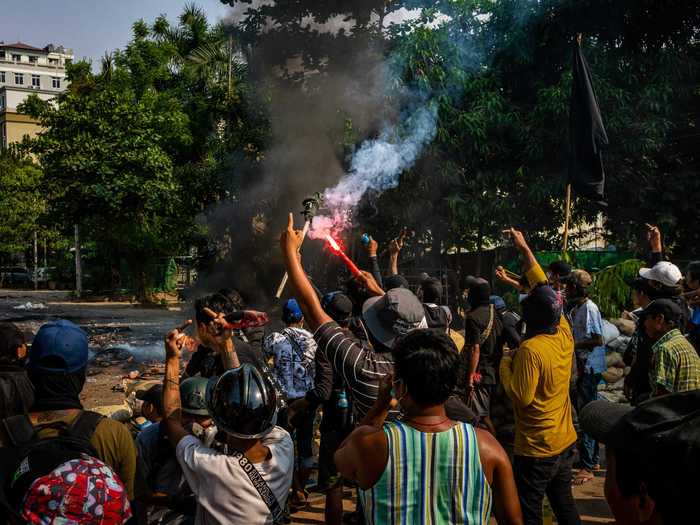
The junta took power on Feb. 1, ousting the National League for Democracy from power.
In the ensuing weeks, Myanmar's citizens have taken to the streets to protest military rule and push for democratic reforms.
Saturday was Armed Forces Day in Myanmar, a day to commemorate the strength of the country's military, known as the Tatmadaw.
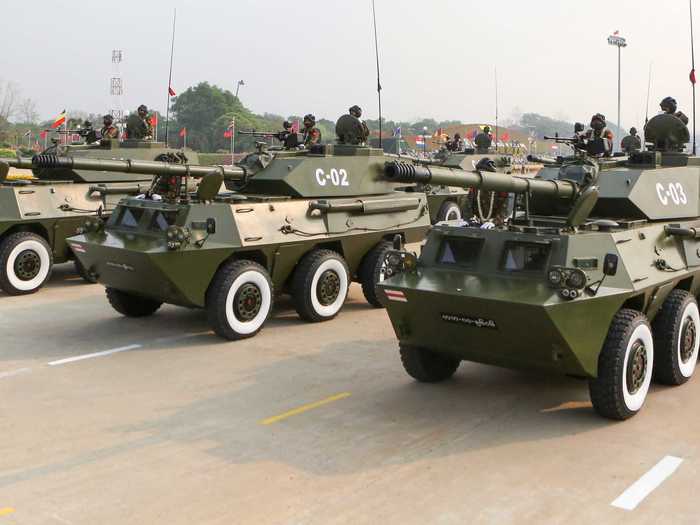
There is speculation that the holiday may have emboldened members of the military.
"Today is a day of shame for the armed forces," Dr. Sasa, the spokesperson for the anti-junta group the Committee Representing Pyidaungsu Hluttaw, said, according to The Guardian.
The military junta came to power on February 1, after several political leaders including Aung San Suu Kyi were detained in early morning raids.
March 27 turned out to be one of the deadliest of the coup, as the Tatmadaw employed assault rifles, sub-machine guns, and tear gas against the opposition.
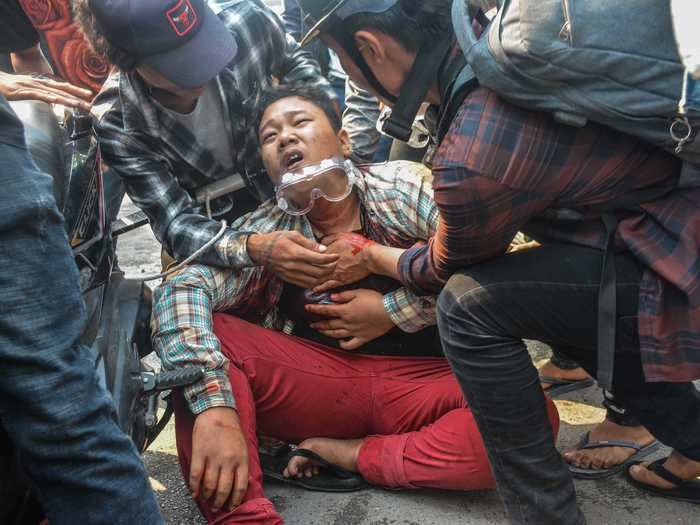
There were 114 deaths reported in one day.
Funerals are no longer off-limits. On Saturday, the military took aim at mourners attending the funeral of a 20-year-old Thae Maung Maung, who was killed during the protests.
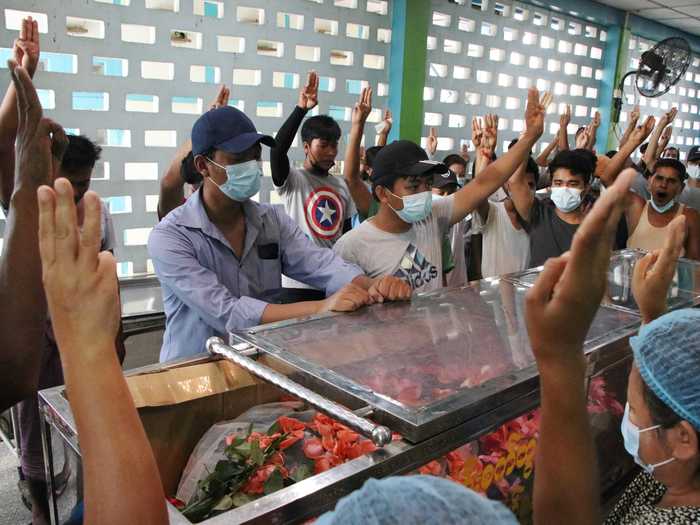
Anti-coup organizers have taken to using the funerals as a rallying point, with mourners singing pro-democracy songs during ceremonies.
In Yangon, relatives mourn the death of a 13-year-old boy at the hands of the junta.
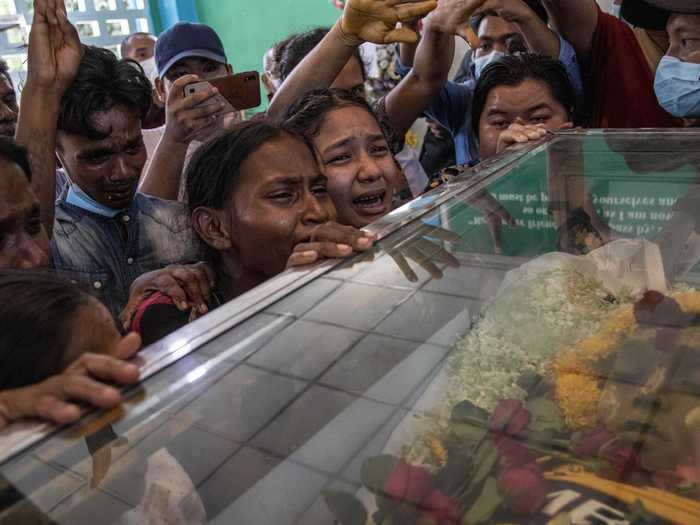
The boy was shot dead by soldiers while playing outside his house.
Outside, protesters hunkered down behind barricades with crude weapons in hand.
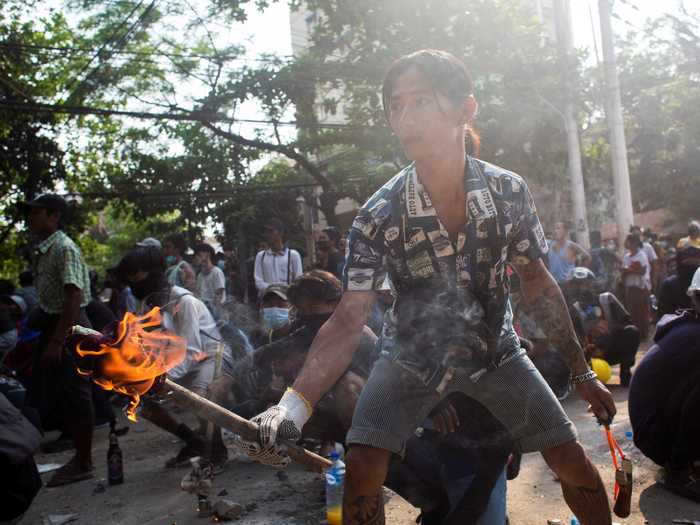
Protesters set up barricades to impede the advance of military forces, launching catapults and other improvised weapons from behind the blockades.
In recent weeks, several Chinese textile factories have been set on fire, possibly in a bid by protesters to gain the attention of China.
"The entire protest in Myanmar is led by the people and a big chunk of this group that's leading this protest, the ones who don't want to go back to the past and live under the dictatorial military rule, are the people working in the garment factories," Nick Vyas, an associate professor at the University of Southern California, told Insider's Sarah Al-Arshani.
Medics transport an injured protester to hospital on a stretcher.
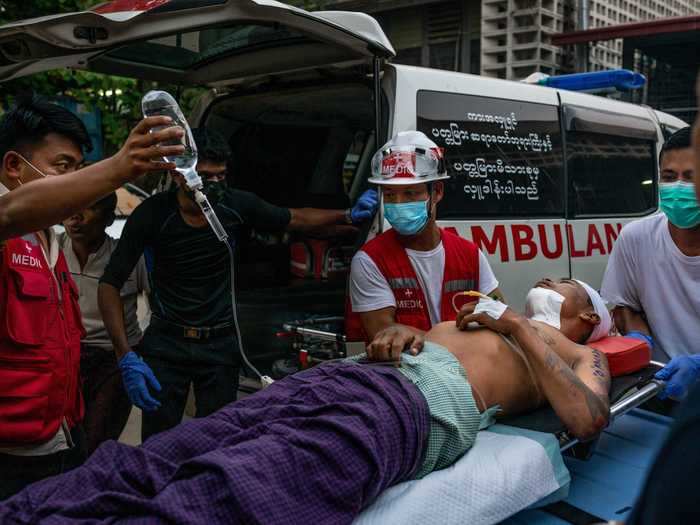
"It's a massacre, it's not a crackdown anymore," Kyaw Win, director of the UK-based Burma Human Rights Network told the BBC.
As violence raged outside, the family of Kywa Htet Aung, 19, mourned at home.
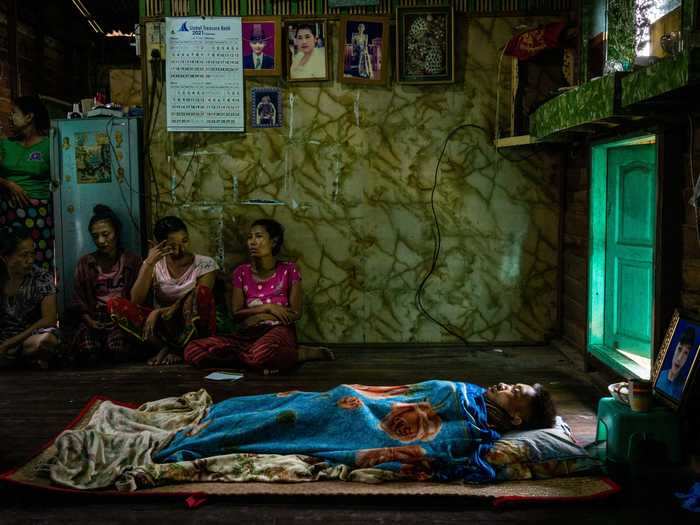
It is estimated that over 400 people have been killed since the coup began on February 1, including dozens of children.
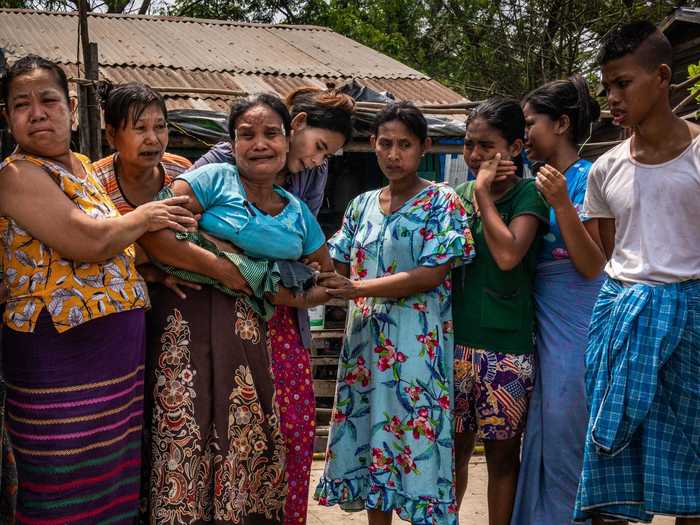
On Saturday alone, Henrietta Fore, head of the UN children's agency UNICEF, told the Associated Press, casualties included two 11-year-olds, three 13-year-olds, three 16-year-olds, and two 17-year-olds.
"In less than two months, at least 35 children have allegedly been killed, countless others seriously injured and almost 1,000 children and young people reported arbitrarily detained by security forces across the country," she continued.
READ MORE ARTICLES ON
Popular Right Now
Advertisement